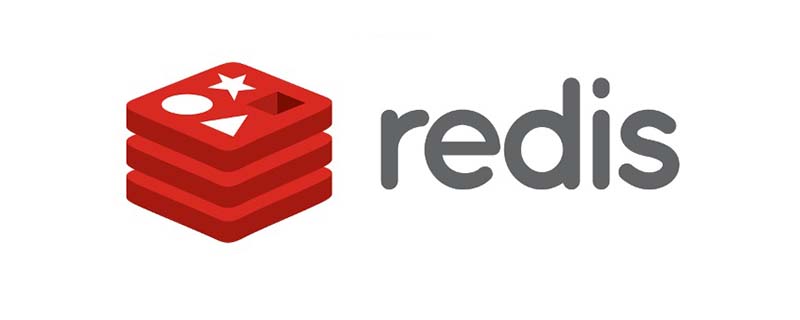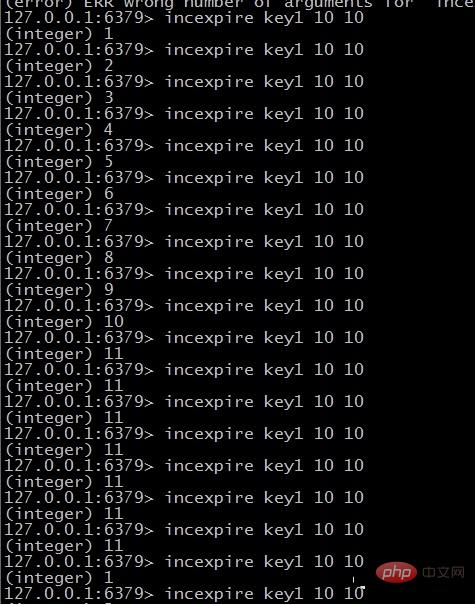
Redis has become the standard cache for Internet companies due to its excellent features of high performance and lightweight. Sometimes we want to add some custom commands, mainly in scenarios where Redis is heavily used. , like rush buying scenarios, it is necessary to ensure the transactionality of multiple Redis commands. If there is no good atomicity guarantee, data inconsistency problems may easily occur.
Although the official transaction plan is given, if it is necessary to make a judgment based on the return value of a certain command before proceeding to the next step, the transaction plan will not be able to cope with it.
Today we will use a practical case to describe how to add a Redis command. This command is mainly used in anti-swipe scenarios:
It is often necessary to ban a certain IP or a certain user for a period of time. If this command is not used, the solution is as follows:
First incr, and then determine whether it is 1. If it is 1, set the expiration time. It can be seen that if the first client that initiates the incr request hangs up during high concurrency, the key will not expire.
The command to be written today is used to ensure this transaction. The server side ensures that if the value of the key is 1, the expiration time is set.
The command usage is as follows:
incexpire key expireTime maxNum
key: the key to be processed
expireTime: expiration time, in seconds. If you write 10, it means that the key will expire in 10 seconds. ;
maxNum: Indicates the amount to which it will increase until it stops increasing. If it is set to 10, the maximum value returned is 11. Returning 11 means it has been exceeded;
2. Writing commands
1. Download the redis code
The Redis version used in this article is 3.2.11;
Download the code and cut to the 3.2.11 branch
git clone https://github.com/antirez/redis
2.Writing and adding Command code
1) Add a new command to the redisCommandTable structure in src/server.c
struct redisCommand redisCommandTable[] = {redisCommandTable is an array, each item represents a redis command, and the first one represents a command The second one is the actual processing function, and the third one is the number of parameters. The others will not be discussed in detail.
2) Add a function declaration in src/server.h:
void incrExpireCommand(client *c);
3) Then add a file as ljh.c (name it yourself) and add the following code:
#include "server.h"
4) Add a new file ljh.o in src/Makefile
REDIS_SERVER_OBJ=adlist.o quicklist.o ae.o anet.o dict.o server.o sds.o zmalloc.o lzf_c.o lzf_d.o pqsort.o zipmap.o sha1.o ziplist.o release.o networking
The execution effect is as follows

You can see that after key1 is increased to 11 It no longer increases, and after 10 seconds, it becomes 1 again.
Finally, we still have to ask ourselves whether it is necessary to add Redis commands in our scenario. If necessary, we must grasp the responsibilities between each layer and do not let Redis end up processing business; generally It is said that the middleware layer generally handles more general functions. The lower layers should be more stable and the less changes are, the normal situation is.
For more related knowledge, please pay attention to redis introductory tutorialcolumn
The above is the detailed content of How to add redis command. For more information, please follow other related articles on the PHP Chinese website!

Hot AI Tools

Undress AI Tool
Undress images for free

Undresser.AI Undress
AI-powered app for creating realistic nude photos

AI Clothes Remover
Online AI tool for removing clothes from photos.

Clothoff.io
AI clothes remover

Video Face Swap
Swap faces in any video effortlessly with our completely free AI face swap tool!

Hot Article

Hot Tools

Notepad++7.3.1
Easy-to-use and free code editor

SublimeText3 Chinese version
Chinese version, very easy to use

Zend Studio 13.0.1
Powerful PHP integrated development environment

Dreamweaver CS6
Visual web development tools

SublimeText3 Mac version
God-level code editing software (SublimeText3)

Hot Topics
 Laravel8 optimization points
Apr 18, 2025 pm 12:24 PM
Laravel8 optimization points
Apr 18, 2025 pm 12:24 PM
Laravel 8 provides the following options for performance optimization: Cache configuration: Use Redis to cache drivers, cache facades, cache views, and page snippets. Database optimization: establish indexing, use query scope, and use Eloquent relationships. JavaScript and CSS optimization: Use version control, merge and shrink assets, use CDN. Code optimization: Use Composer installation package, use Laravel helper functions, and follow PSR standards. Monitoring and analysis: Use Laravel Scout, use Telescope, monitor application metrics.
 How to use the Redis cache solution to efficiently realize the requirements of product ranking list?
Apr 19, 2025 pm 11:36 PM
How to use the Redis cache solution to efficiently realize the requirements of product ranking list?
Apr 19, 2025 pm 11:36 PM
How does the Redis caching solution realize the requirements of product ranking list? During the development process, we often need to deal with the requirements of rankings, such as displaying a...
 What should I do if the Redis cache of OAuth2Authorization object fails in Spring Boot?
Apr 19, 2025 pm 08:03 PM
What should I do if the Redis cache of OAuth2Authorization object fails in Spring Boot?
Apr 19, 2025 pm 08:03 PM
In SpringBoot, use Redis to cache OAuth2Authorization object. In SpringBoot application, use SpringSecurityOAuth2AuthorizationServer...
 Recommended Laravel's best expansion packs: 2024 essential tools
Apr 30, 2025 pm 02:18 PM
Recommended Laravel's best expansion packs: 2024 essential tools
Apr 30, 2025 pm 02:18 PM
The essential Laravel extension packages for 2024 include: 1. LaravelDebugbar, used to monitor and debug code; 2. LaravelTelescope, providing detailed application monitoring; 3. LaravelHorizon, managing Redis queue tasks. These expansion packs can improve development efficiency and application performance.
 Laravel environment construction and basic configuration (Windows/Mac/Linux)
Apr 30, 2025 pm 02:27 PM
Laravel environment construction and basic configuration (Windows/Mac/Linux)
Apr 30, 2025 pm 02:27 PM
The steps to build a Laravel environment on different operating systems are as follows: 1.Windows: Use XAMPP to install PHP and Composer, configure environment variables, and install Laravel. 2.Mac: Use Homebrew to install PHP and Composer and install Laravel. 3.Linux: Use Ubuntu to update the system, install PHP and Composer, and install Laravel. The specific commands and paths of each system are different, but the core steps are consistent to ensure the smooth construction of the Laravel development environment.
 Redis's Role: Exploring the Data Storage and Management Capabilities
Apr 22, 2025 am 12:10 AM
Redis's Role: Exploring the Data Storage and Management Capabilities
Apr 22, 2025 am 12:10 AM
Redis plays a key role in data storage and management, and has become the core of modern applications through its multiple data structures and persistence mechanisms. 1) Redis supports data structures such as strings, lists, collections, ordered collections and hash tables, and is suitable for cache and complex business logic. 2) Through two persistence methods, RDB and AOF, Redis ensures reliable storage and rapid recovery of data.
 In a multi-node environment, how to ensure that Spring Boot's @Scheduled timing task is executed only on one node?
Apr 19, 2025 pm 10:57 PM
In a multi-node environment, how to ensure that Spring Boot's @Scheduled timing task is executed only on one node?
Apr 19, 2025 pm 10:57 PM
The optimization solution for SpringBoot timing tasks in a multi-node environment is developing Spring...
 How to choose a GitLab database in CentOS
Apr 14, 2025 pm 05:39 PM
How to choose a GitLab database in CentOS
Apr 14, 2025 pm 05:39 PM
When installing and configuring GitLab on a CentOS system, the choice of database is crucial. GitLab is compatible with multiple databases, but PostgreSQL and MySQL (or MariaDB) are most commonly used. This article analyzes database selection factors and provides detailed installation and configuration steps. Database Selection Guide When choosing a database, you need to consider the following factors: PostgreSQL: GitLab's default database is powerful, has high scalability, supports complex queries and transaction processing, and is suitable for large application scenarios. MySQL/MariaDB: a popular relational database widely used in Web applications, with stable and reliable performance. MongoDB:NoSQL database, specializes in






